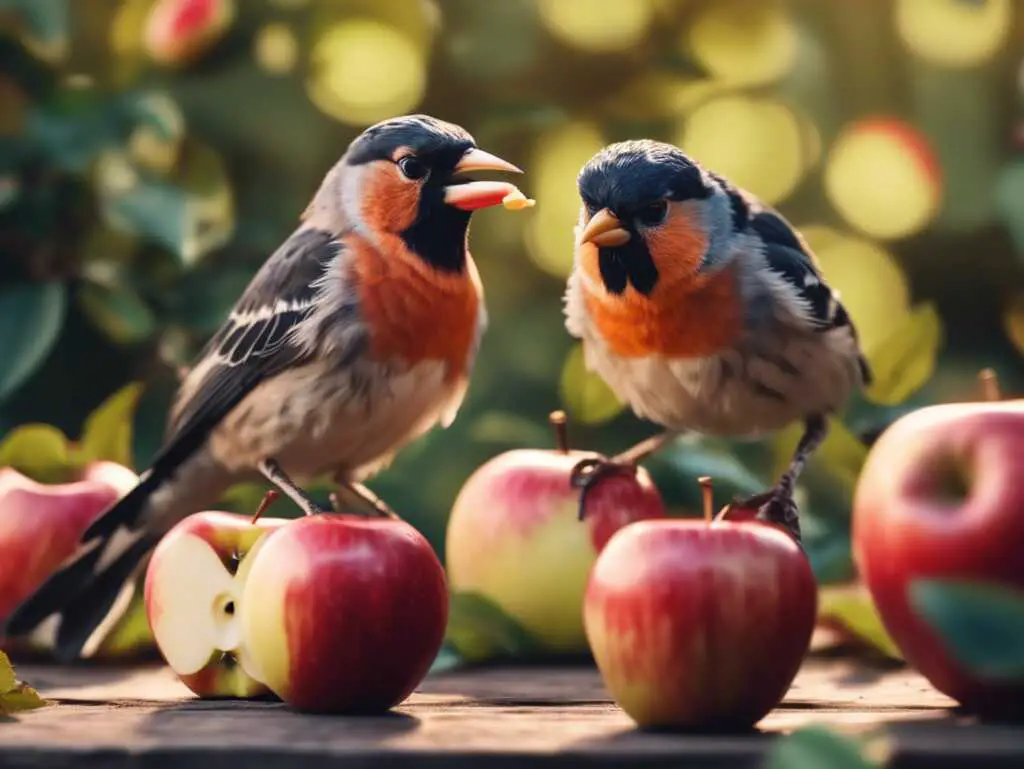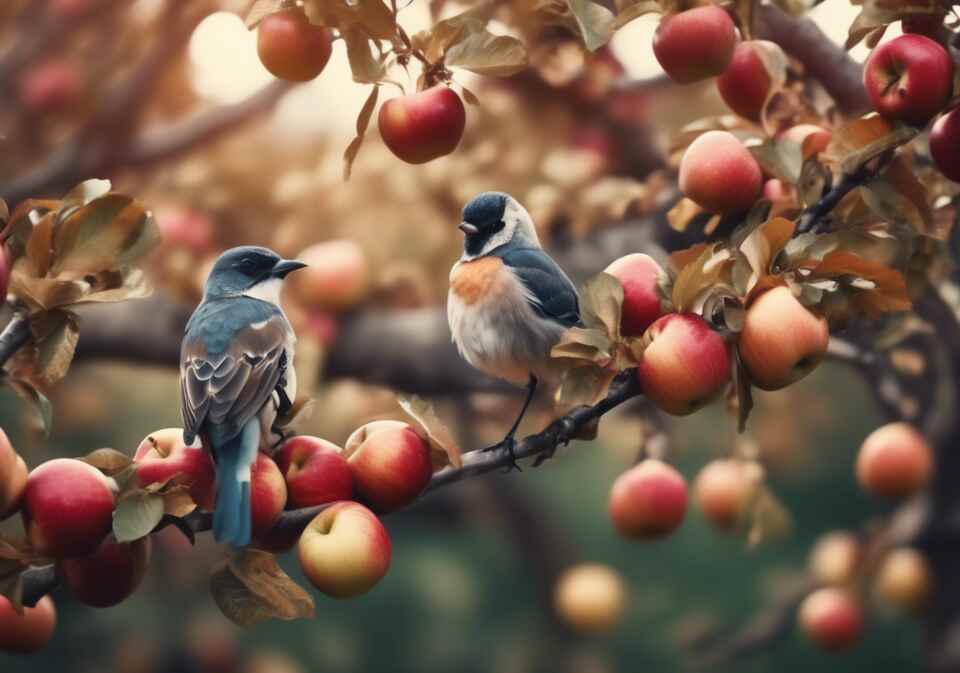Many people enjoy sharing fruits with their feathered friends, and apples are no exception. Birds consuming apples is a common sight, but have you ever wondered if it is safe for them to eat this popular fruit? Let’s delve into the topic to understand whether birds can indeed enjoy apples as part of their diet.
Table of Contents
Can Birds Eat Apples?
Apples: A Nutrient-Rich Fruit
Apples are recognized for their nutritional value, being rich in essential nutrients such as vitamins, minerals, and dietary fiber. These factors make apples a healthy choice not only for humans but also potentially for birds.
As nature’s opportunistic feeders, birds have the ability to consume a wide range of foods. When it comes to apples, many bird species can safely eat them. Apples are non-toxic to most birds, making them a suitable occasional treat.
Potential Benefits of Birds Eating Apples
Feeding birds apples can offer various benefits. The fruit serves as a good source of hydration, particularly during hot weather. Apples also provide a natural source of sugar and energy, which is beneficial for birds, especially during migration or breeding seasons.
Precautions to Consider
While apples can be a nutritious addition to a bird’s diet, there are some precautions to keep in mind. It is essential to offer only ripe apples to birds, as unripe fruits can be harder to digest. Additionally, seeds should be removed before feeding the fruit to birds, as apple seeds contain cyanide which can be harmful if consumed in large quantities.
How to Offer Apples to Birds
If you decide to share apples with your feathered visitors, there are a few ways to offer the fruit. Slicing or chopping the apples into small, manageable pieces makes it easier for birds to eat. Placing the apple pieces on feeders or directly on flat surfaces can attract birds to enjoy this treat.
Birds That Enjoy Eating Apples
Various bird species are known to relish apples as part of their diet. Here’s a list of 15 birds that may be attracted to apples:
- American Robin
- Cedar Waxwing
- Northern Mockingbird
- Eastern Bluebird
- European Starling
- Gray Catbird
- Baltimore Oriole
- Yellow-rumped Warbler
- House Finch
- Red-winged Blackbird
- Rose-breasted Grosbeak
- Eurasian Blackbird
- American Goldfinch
- Common Grackle
- Red-bellied Woodpecker
Observing these birds enjoy apples can be a delightful experience for bird enthusiasts.
Birds can indeed eat apples as part of their diet. Apples provide birds with essential nutrients, energy, and hydration. By offering ripe apples while taking necessary precautions, you can safely share this nutritious fruit with your feathered visitors. Watching birds indulge in apples can be a rewarding experience that enhances your connection with nature.
The Nutritional Benefits of Apples for Wildlife
Apples are not only a popular fruit for humans but also a nutritious snack for wildlife, including birds. These vibrant fruits offer several health benefits for various creatures that feast on them in the wild.
The Nutritional Value of Apples for Birds
Birds can indeed eat apples and enjoy a range of nutritional benefits from consuming this fruit. Apples are rich in essential vitamins such as Vitamin C, which is crucial for birds’ overall health and immune function. Additionally, apples contain dietary fiber, which helps with digestion in birds, ensuring their digestive systems function smoothly.
Apples as a Source of Hydration for Birds
Apart from essential vitamins and fiber, apples also provide a source of hydration for birds. During hot weather or dry seasons when water sources may be scarce, apples can offer birds a source of moisture, helping them stay hydrated.
Apples for Energy Boost
The natural sugars present in apples can provide birds with a quick energy boost. This is especially beneficial during times when birds need extra energy, such as during migration or breeding seasons. Apples can serve as a convenient and nutritious snack for birds to refuel and continue their activities.
How to Offer Apples to Birds
If you’re interested in providing apples to birds in your backyard or garden, there are a few simple ways to do so. You can slice or chop up apples into small, bite-sized pieces and place them on a bird feeder or a flat surface where birds frequent. Alternatively, you can hang apple slices from tree branches using a string, making it easier for birds to peck at them.
Some Birds That Enjoy Apples
While many bird species are known to enjoy apples, some, like robins, bluebirds, and woodpeckers, particularly relish this fruit. These birds are likely to visit your feeding stations or garden if you offer them apples as part of their diet. Observing birds feasting on apples can be a delightful experience for any wildlife enthusiast.
Caution and Best Practices
While apples are generally safe for birds to consume, it’s essential to take some precautions. Avoid offering birds spoiled or moldy apples, as these can be harmful to their health. Additionally, remember that apples should be provided as a supplement to a varied diet for birds rather than their sole source of nutrition.
Apples can be a valuable addition to the diet of birds in the wild. By offering this nutritious fruit to birds, you can contribute to their overall well-being and enjoy watching these feathered creatures delight in a tasty and beneficial treat.
Conclusion
Birds can indeed eat apples, and it can be a nutritious addition to their diet. The natural sweetness and various vitamins and minerals found in apples can provide essential nutrients for different bird species. From attracting a variety of wildlife to supporting their overall health and well-being, feeding apples to birds can be a simple yet effective way to contribute positively to their environment. By understanding the nutritional benefits of apples for wildlife, we can better appreciate the importance of offering diverse food sources to support the diverse needs of our feathered friends.
So next time you find yourself with some extra apples, consider sharing them with the birds in your area – it can be a rewarding experience for both you and your avian visitors.



